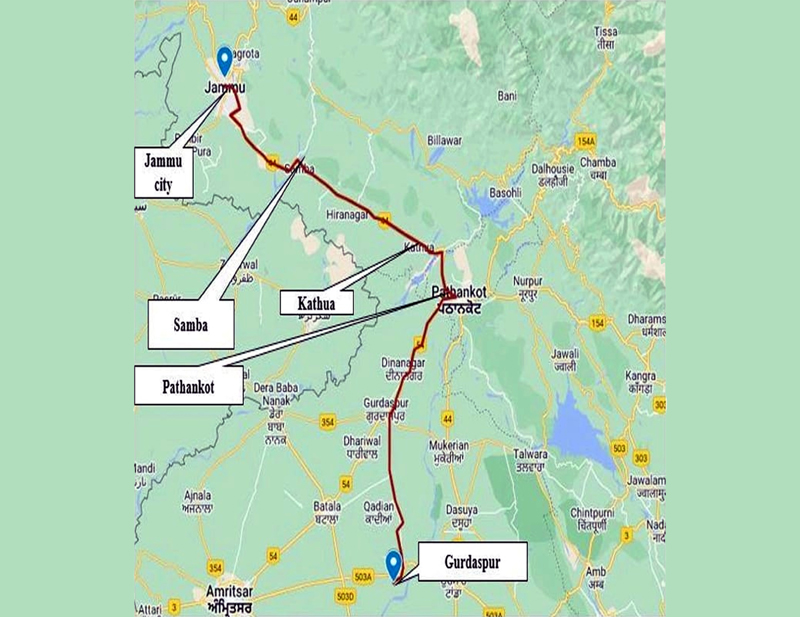The Petroleum and Natural Gas Regulatory Board (PNGRB) has taken steps to develop a gas pipeline from Jammu to Srinagar in India. This decision came after awarding the 175-kilometre Gurdaspur-Jammu Tawi Gas Pipeline Project to the Gas Authority of India Limited (GAIL). The pipeline will originate from the Gurdaspur-Jammu Natural Gas Pipeline, an extension to Srinagar but can have some other vendor than GAIL.
It’s worth noting that GAIL had previously secured the licence to construct the gas pipeline from Gurdaspur, Punjab, to Jammu. The Gurdaspur-Jammu and the Jammu-Srinagar gas pipelines will play a vital role in meeting the natural gas requirements in the Union Territory of Jammu and Kashmir. The pipeline is expected to transport environmentally friendly fuel to Jammu and then to Kashmir and will have an initial capacity of at least 2 million standard cubic metres per day. Both of these gas pipeline lines are set to bolster the energy security of the region by enabling the transportation of natural gas from Gurdaspur in Punjab to Jammu and Kashmir. The pipeline’s construction involves the development of essential infrastructure, including laying pipelines, establishing pumping stations, and creating distribution networks. Being a cleaner fossil fuel than coal and oil, natural gas contributes to reducing greenhouse gas emissions and enhancing air quality, resulting in positive impacts on the environment and public health. All these efforts will yield a year-round gas supply, irrespective of weather and road conditions. The Government has been initiating various measures to provide various sources of clean cooking and heating fuel, which include upgrading the electricity distribution network and now the gas pipeline. The gas pipeline will take some years to lay before start carrying supply to Kashmir, but Kashmir will get connected to the rest of the country by train by the end of this year. Even this will provide a much-needed alternative to carry gas to the Kashmir Division.
Furthermore, the availability of natural gas through this pipeline diversifies the energy mix of the regions, reducing reliance on other energy sources and increasing energy resilience while lowering vulnerability to supply disruptions. By promoting the use of natural gas, the pipeline plays a key role in the growth of the natural gas market in Punjab and Jammu and Kashmir. This creates opportunities for gas-based industries, encourages investments, and fosters competition, leading to a more efficient and dynamic market. Introducing modern gas heating infrastructure in the Kashmir valley could become the next significant development, akin to many advanced countries. Such an initiative has the potential to greatly enhance tourism while simultaneously reducing reliance on fossil fuels like wood/coal and diesel for heating purposes. This transformative move not only offers commercial benefits but also contributes to environmental preservation, aligning with commitments made under the Paris Agreement to curtail carbon emissions substantially.
The Government’s focus on devising inventive methods to offer state-of-the-art amenities to the people of Jammu and Kashmir is of utmost importance. This essential project offers a dependable and cleaner energy source to meet the escalating energy demands of both areas, benefiting industries, businesses, and households. The utilisation of natural gas will lead to job creation, enhanced productivity, and an overall improvement in living standards. Overall, the Gurdaspur-Jammu-Srinagar Gas Pipeline serves as a crucial infrastructure project with far-reaching benefits, supporting energy security, economic development, environmental sustainability, and regional integration.
Trending Now
E-Paper


